Miniature Pinschers, also known as Min Pins, are a small breed of dog that are known for their lively and energetic personalities. However, many potential owners wonder if these dogs can be left alone for extended periods. Can Miniature Pinschers Be Left Alone? The answer to this question is not a simple yes or no, as it depends on a variety of factors.
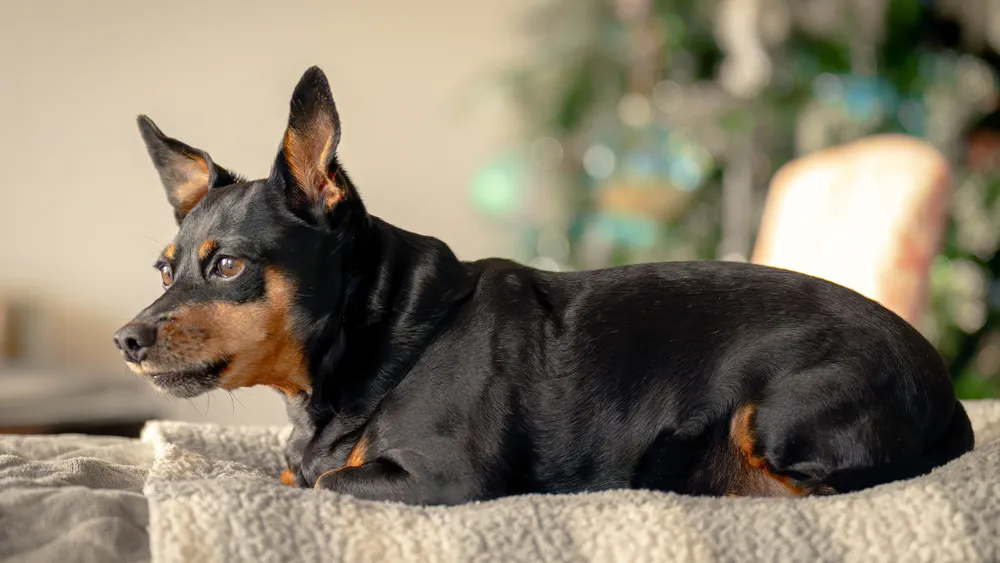
One important factor to consider is the age of the Miniature Pinscher. Puppies require more attention and supervision than adult dogs, and should not be left alone for more than a few hours at a time. Adult Min Pins, on the other hand, can typically be left alone for longer periods as long as their basic needs are met. It is important to note, however, that no dog should be left alone for excessively long periods, as this can lead to boredom, anxiety, and destructive behavior.
Another factor to consider is the individual temperament of the Miniature Pinscher. Some dogs are more independent and self-sufficient than others and may be better suited to being left alone for longer periods. However, other dogs may become anxious or destructive when left alone and may require more attention and supervision. It is important for potential owners to carefully consider their lifestyle and the needs of the dog before deciding if a Miniature Pinscher is the right breed for them.
Understanding Miniature Pinschers
Breed Characteristics
The Miniature Pinscher, also known as Min Pins, is a small breed of dog that originated in Germany. They are known for their high energy levels, intelligence, and loyal and affectionate nature towards their owners. These dogs are fearless and make excellent watchdogs, alerting their owners to any potential danger.
In terms of appearance, Miniature Pinschers are lean and muscular, with erect ears and a high-set tail. They come in three colors: red, tan, and black and tan. They typically weigh between 8-10 pounds and stand at a height of 10-12 inches.
History and Ancestry
The Miniature Pinscher has a long history, with its ancestors dating back to the 17th century in Germany. They were originally bred to hunt rats and other small rodents. The breed was developed by crossing the Doberman Pinscher, the Dachshund, and the Italian Greyhound.

Temperament and Behavior
Miniature Pinschers are known for their high energy levels and require plenty of exercise to keep them happy and healthy. They are also very intelligent and require mental stimulation to prevent boredom. These dogs are loyal and affectionate towards their owners and make excellent family pets.
However, they can be quite stubborn and require firm and consistent training from an early age. They can also be wary of strangers and may require socialization to prevent any aggressive behavior.
Physical Attributes
In terms of physical attributes, Miniature Pinschers are a small breed with a lean and muscular body. They have a distinctive head shape with erect ears and a high-set tail. Their coat is short and shiny and comes in three colors: red, tan, and black and tan.
Overall, Miniature Pinschers are a high-energy breed that requires plenty of exercise and mental stimulation. They are loyal and affectionate towards their owners but can be stubborn and require consistent training. With proper care and attention, these dogs make excellent family pets.
Caring for a Miniature Pinscher
Miniature Pinschers are small dogs that require a certain level of care to keep them healthy and happy. Here are some important aspects to consider when caring for a Miniature Pinscher:
Exercise Requirements
Miniature Pinschers are high-energy dogs that require daily exercise to maintain their physical and mental well-being. They enjoy playing and going for walks, but it is important to note that they tend to chase after small animals. Therefore, it is recommended to keep them on a leash or in a fenced area when outside.
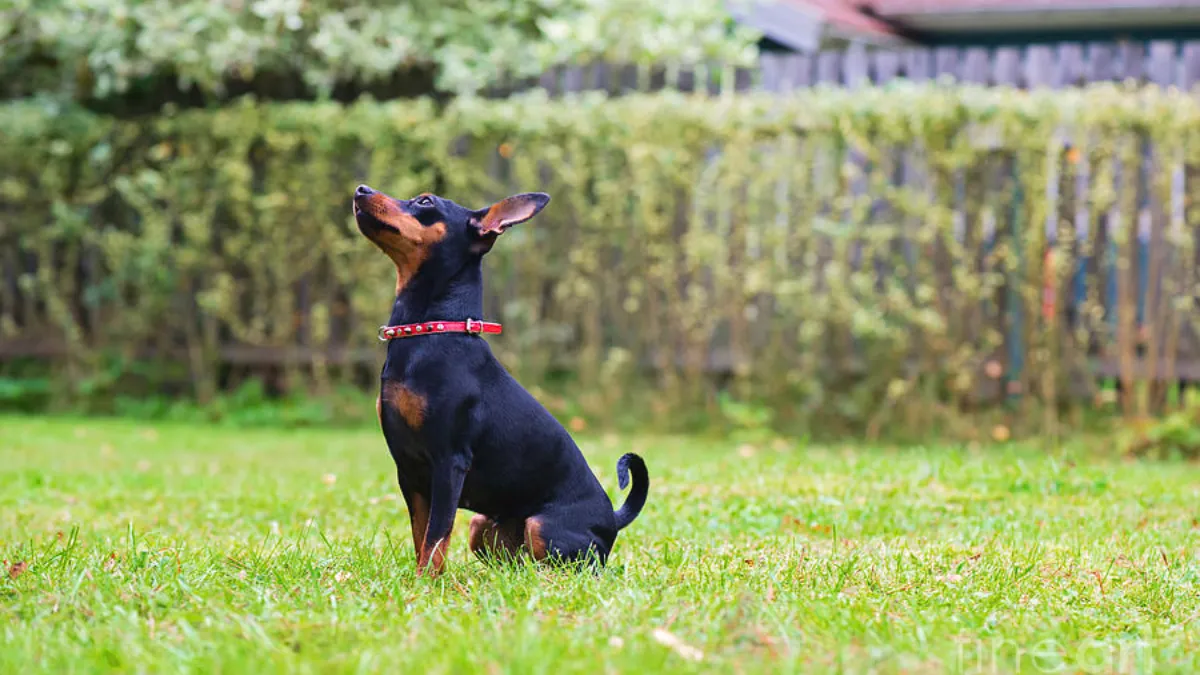
Diet and Nutrition
A balanced diet is essential to keep a Miniature Pinscher healthy. It is important to provide them with high-quality dog food that meets their nutritional needs. Fresh water should always be available to them, and it is recommended to feed them small meals throughout the day rather than one large meal.
Health and Well-being
Miniature Pinschers are generally healthy dogs, but they can be prone to certain health issues such as progressive retinal atrophy and patellar luxation. Regular check-ups with a veterinarian can help prevent and detect any health issues early on. It is also important to provide them with regular medication if prescribed by a veterinarian.
Grooming Needs
Miniature Pinschers have a short, smooth coat that requires minimal grooming. However, they do shed, so regular brushing can help control shedding. It is also important to clean their ears and teeth regularly to prevent any infections or dental issues.
Overall, caring for a Miniature Pinscher requires a routine that includes exercise, mental stimulation, playtime, and a balanced diet. With proper care, Miniature Pinschers can live long and healthy lives.
Behavioral Training
Miniature Pinschers are lively, active dogs that require a lot of attention and stimulation. Behavioral training is essential to ensure that they do not develop destructive behavior or excessive barking.
Positive Reinforcement
Positive reinforcement is an effective training technique that involves rewarding good behavior with treats, toys, or positive attention. This technique works well with Miniature Pinschers as they respond well to positive feedback. Owners should use this technique to encourage good behavior such as obeying commands, being calm, and not barking excessively.
Socialization
Socialization is the process of introducing a dog to new people, animals, and environments. Miniature Pinschers need to be socialized from an early age to prevent them from becoming anxious or aggressive. Owners should expose their dogs to different situations such as visits to the park, meeting new people, and other dogs.

Dealing with Separation Anxiety
Miniature Pinschers are prone to separation anxiety and may become anxious or destructive when left alone for long periods. Owners can help their dogs cope with separation anxiety by providing them with a comfortable and safe space, such as a crate or a designated room. Leaving a familiar scent, such as a piece of clothing, can also help calm their anxiety. Gradually increasing the amount of time they are left alone can also help them adjust to being alone.
In conclusion, behavioral training is essential for Miniature Pinschers to prevent destructive behavior and excessive barking. Positive reinforcement, socialization, and dealing with separation anxiety are important aspects of behavioral training that owners should focus on. With proper training, Miniature Pinschers can become well-behaved and happy companions.
Creating a Suitable Environment
Miniature Pinschers are intelligent and affectionate small dogs that can adapt well to apartment living. However, like any dog, they require attention and human interaction to thrive. When it comes to leaving them alone, it's important to create a suitable environment that meets their needs.
Home Considerations
When leaving a Miniature Pinscher alone, it's important to ensure that their indoor space is safe and comfortable. This means providing them with a cozy bed, access to water, and interactive toys to keep them entertained. It's also important to remove any potential hazards, such as toxic plants or chewable objects that could harm them.
Alone Time Management
While Miniature Pinschers can handle being left alone for short periods, it's important to manage their alone time properly. For example, if you work long hours, consider hiring a dog walker to take them for a walk during the day. Alternatively, you could enroll them in a doggy daycare program to keep them social and engaged.
Interactive Engagement
Miniature Pinschers are playful dogs with a high prey drive, so it's important to provide them with interactive toys and chew toys to keep them entertained. This not only helps to prevent destructive behavior but also promotes mental stimulation and physical exercise. Additionally, spending time playing with them when you are home can help to strengthen your bond and provide them with the human interaction they crave.
Overall, while Miniature Pinschers can handle being left alone for short periods, it's important to ensure that they have a suitable environment that meets their needs. By providing them with a safe and comfortable indoor space, managing their alone time properly, and engaging them with interactive toys and human interaction, you can help to ensure that they are happy and healthy.
Understanding Their Independent Nature
Miniature Pinschers are known for their independent and spirited nature. They are confident and assertive, which can make them seem dominant at times. This breed is highly curious and loves to explore their surroundings.
Their independent nature means that they are comfortable being left alone for short periods. However, it is important to note that they still require attention and interaction with their owners. Neglecting their social needs can lead to behavioral issues such as anxiety and destructive behavior.
It is recommended to gradually introduce them to being left alone for longer periods, starting with just a few minutes and gradually increasing the time. Providing them with toys and puzzles to keep them entertained can also help alleviate boredom and prevent destructive behavior.
Overall, while Miniature Pinschers have an independent nature, they still require attention and interaction with their owners to ensure their well-being and prevent behavioral issues.
Daily Routine and Activities
Miniature Pinschers are small dogs that have a lot of energy, so it's important to establish a daily routine that includes exercise, playtime, and training. This will help keep them mentally and physically stimulated and prevent them from getting bored or destructive when left alone.
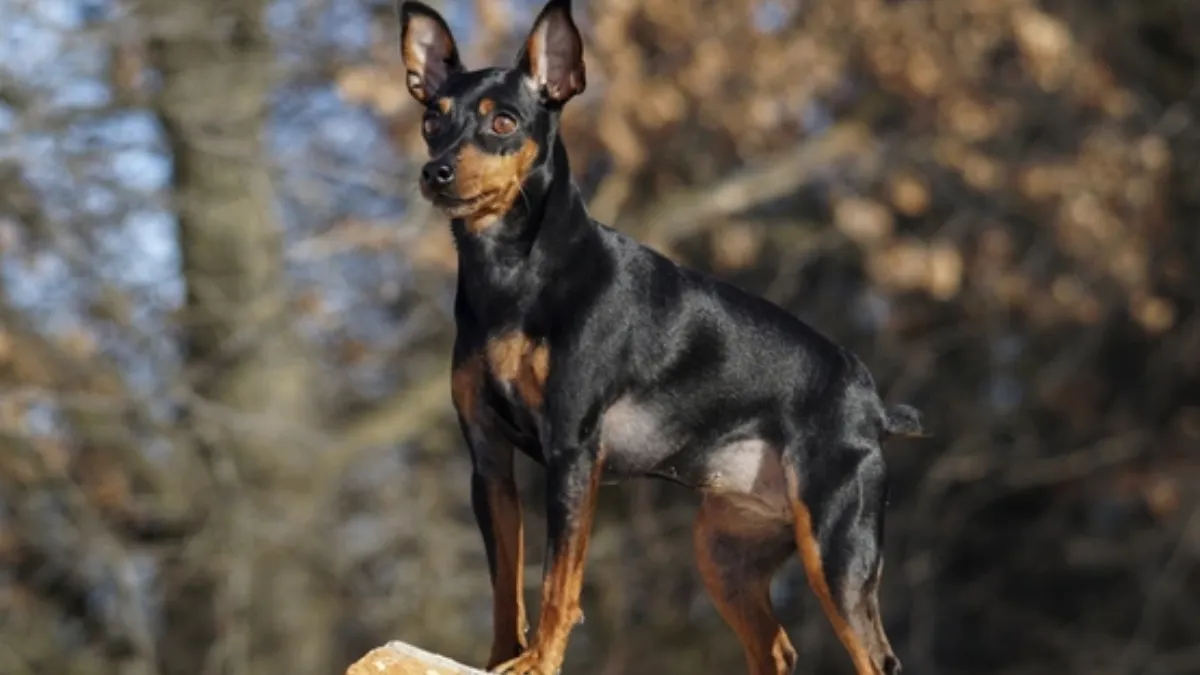
Exercise and Play
Miniature Pinschers require daily exercise, which can include going for walks, playing fetch, or running around in a fenced-in yard. They also love to play with toys, such as balls or squeaky toys, which can help keep them entertained and happy. It's important to make sure they get enough exercise and playtime, as this can help prevent behavioral issues and keep them healthy.
Training and Learning
Miniature Pinschers are intelligent dogs that enjoy learning new things, so training can be a fun and rewarding activity for both the dog and the owner. Basic obedience training, such as sit, stay, and come, can help establish a strong bond between the dog and the owner and also make it easier to manage the dog's behavior. It's important to use positive reinforcement techniques, such as treats and praise when training a Miniature Pinscher, as they respond well to this type of training.
Daily Care
In addition to exercise and training, Miniature Pinschers require daily care, such as feeding, grooming, and attention. They should be fed high-quality dog food that is appropriate for their age and size and should have access to fresh water at all times. Grooming should include brushing their coat regularly to remove loose hair and prevent matting, as well as trimming their nails and cleaning their ears. Miniature Pinschers also require attention and affection from their owners, so it's important to spend time with them every day to keep them happy and healthy.
Overall, Miniature Pinschers can be left alone for short periods, as long as they have a daily routine that includes exercise, playtime, and training, as well as daily care and attention from their owners. With the right care and attention, Miniature Pinschers can be happy and healthy dogs that make great companions for their owners.
Leaving Miniature Pinschers Alone
Miniature Pinschers are affectionate dogs that thrive on attention and social interaction. However, they can also adapt to being left alone for short periods, as long as they receive proper care and attention.
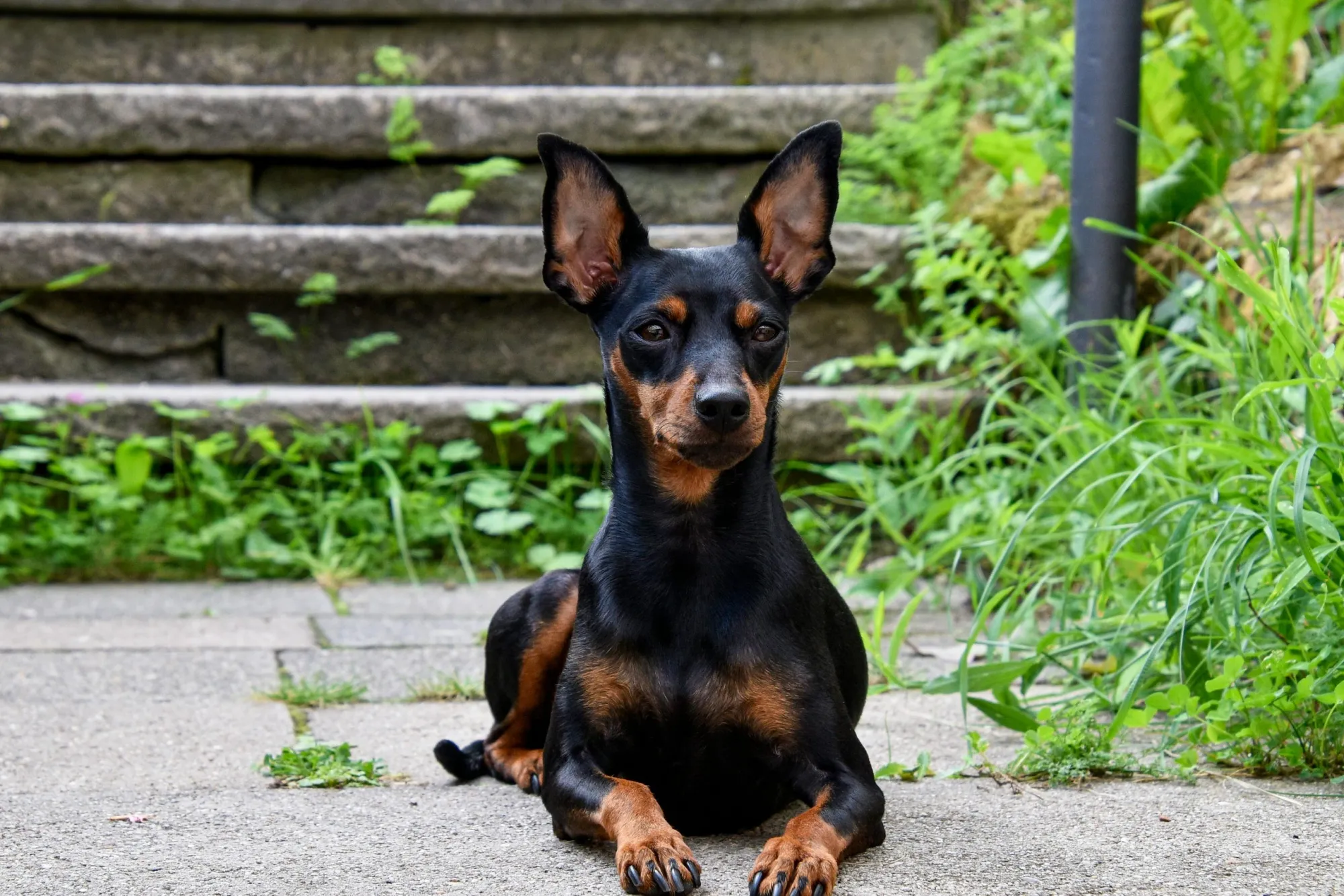
It is important to acclimate your Miniature Pinscher to being alone gradually, starting with short periods and gradually increasing the duration. Providing them with a comfortable and secure space, such as a crate or a designated room, can also help alleviate anxiety and promote their well-being.
To ensure that your Miniature Pinscher is well-cared for while you are away, consider hiring a pet sitter or dog walker to provide them with attention and exercise. Leaving them with interactive toys and puzzles can also help keep them mentally stimulated and prevent boredom.
Separation anxiety can be a concern for some Miniature Pinschers, so it is important to monitor their behavior and seek professional help if necessary. A balanced diet, regular exercise, and plenty of affection can also help promote their overall well-being and reduce anxiety.
In summary, Miniature Pinschers can be left alone for short periods as long as they receive proper care and attention. Gradual acclimation, a comfortable space, and engaging toys can help prevent anxiety and promote their well-being.
Additional Considerations
When leaving a Miniature Pinscher alone, there are some additional considerations that owners should keep in mind to ensure their pet's safety and well-being.
Choosing Toys and Accessories
Miniature Pinschers are energetic and playful dogs that require mental and physical stimulation. When choosing toys and accessories for a Miniature Pinscher, it's important to select items that are durable and safe for them to play with. Chew toys, interactive puzzles, and balls for fetch are all great options to keep your Miniature Pinscher entertained while you're away.
Understanding Vocal Behaviors
Miniature Pinschers are known for being vocal dogs. They may bark, whine, or howl when they're feeling anxious, bored, or lonely. Owners need to understand Miniature Pinscher's vocal behaviors and address any underlying issues that may be causing them to vocalize excessively. Providing plenty of toys and activities, as well as ensuring their basic needs are met, can help reduce excessive vocalization.
Adapting to Weather Conditions
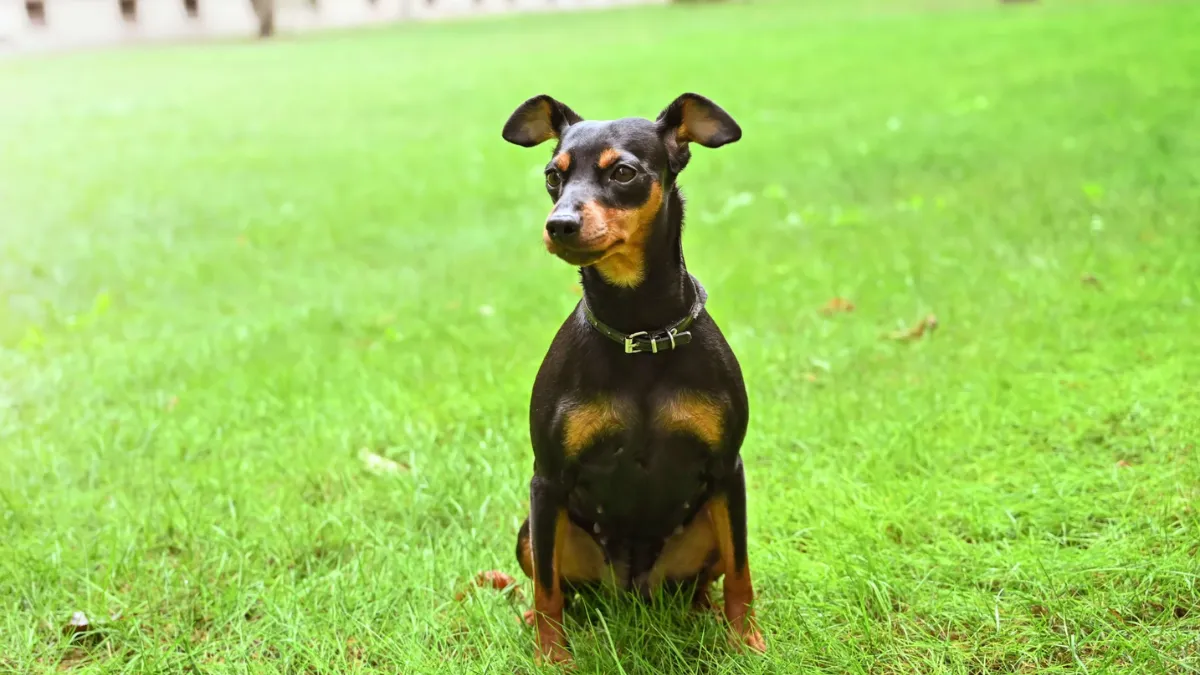
Miniature Pinschers are sensitive to extreme weather conditions, particularly cold weather. Owners should take steps to ensure their Miniature Pinscher is comfortable and safe during colder months. This may include providing warm bedding, limiting outdoor time, and providing appropriate clothing if necessary.
Overall, Miniature Pinschers can be left alone for short periods as long as their basic needs are met and their environment is safe and stimulating. However, owners should be aware of their pet's individual needs and preferences and take steps to ensure their well-being while they're away. The Miniature Pinscher Club of America is a great resource for owners looking to learn more about this breed and their specific needs.
Miniature Pinscher Ownership Guide
Miniature Pinschers, also known as Min Pins, are a small breed of dog that can make great companions for those who have the time and resources to care for them properly. This guide will provide some basic information on caring for a Miniature Pinscher.
Lifespan and Care
Miniature Pinschers have an average lifespan of 12 to 14 years. Like all dogs, they require proper care and attention to maintain their health and well-being. This includes regular exercise, a balanced diet, and routine visits to the veterinarian.
Intelligence and Socialization
Miniature Pinschers are intelligent dogs that require mental stimulation and socialization to thrive. They enjoy learning new tricks and commands and can benefit from obedience training and interactive toys. It is important to socialize with other dogs and people from a young age to prevent shyness or aggression.
Loyalty and Well-being
Miniature Pinschers are loyal and affectionate dogs that bond closely with their owners. They require attention and affection to maintain their emotional well-being and may become anxious or destructive if left alone for long periods. It is important to provide them with plenty of love and attention to keep them happy and healthy.
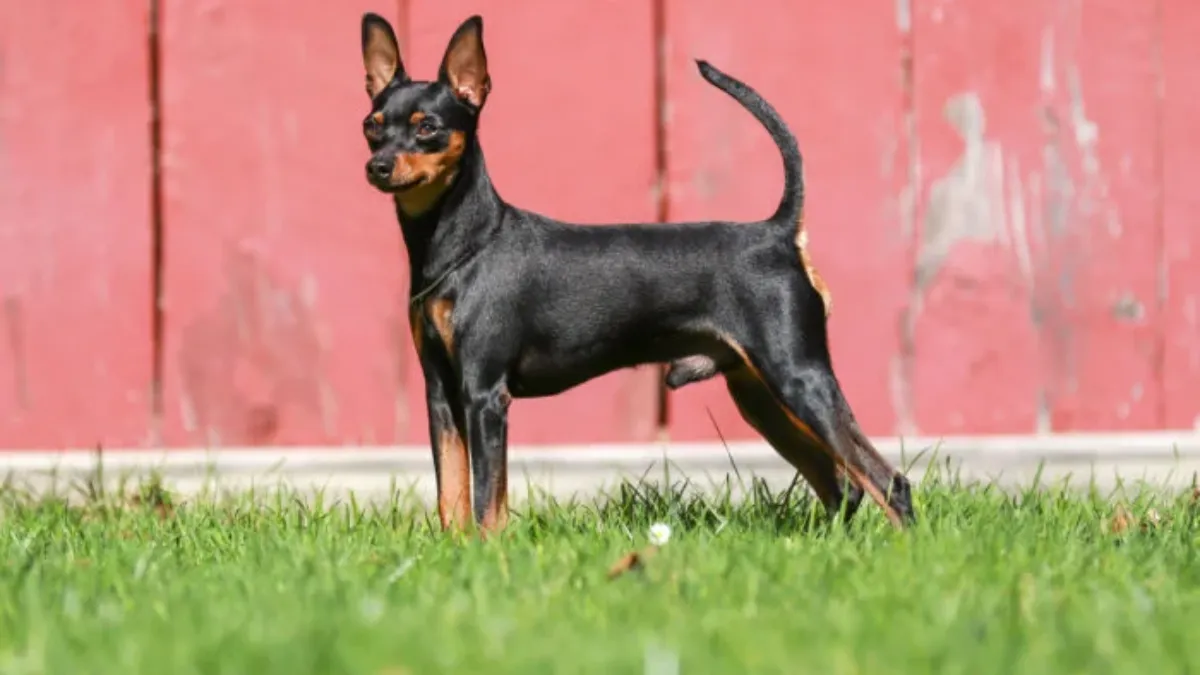
In conclusion, Miniature Pinschers can make wonderful pets for those who are willing to invest the time and effort into their care and well-being. With proper attention and socialization, they can be loyal and loving companions for many years to come.
Conclusion:
In conclusion, the question "Can Miniature Pinschers Be Left Alone?" can be answered affirmatively for short durations. However, it's crucial to meet their needs before leaving, including exercise, attention, and care, to maintain their well-being.
Training is also crucial for Miniature Pinschers, as they can be prone to separation anxiety and destructive behavior when left alone for long periods. It is recommended to gradually increase the amount of time they are left alone to help them adjust and prevent anxiety.
While Miniature Pinschers are relatively low-maintenance in terms of grooming, regular check-ups with a veterinarian are important to ensure their health and well-being.
Overall, with proper care and attention, Miniature Pinschers can be great companions and can adapt well to being left alone for short periods.




